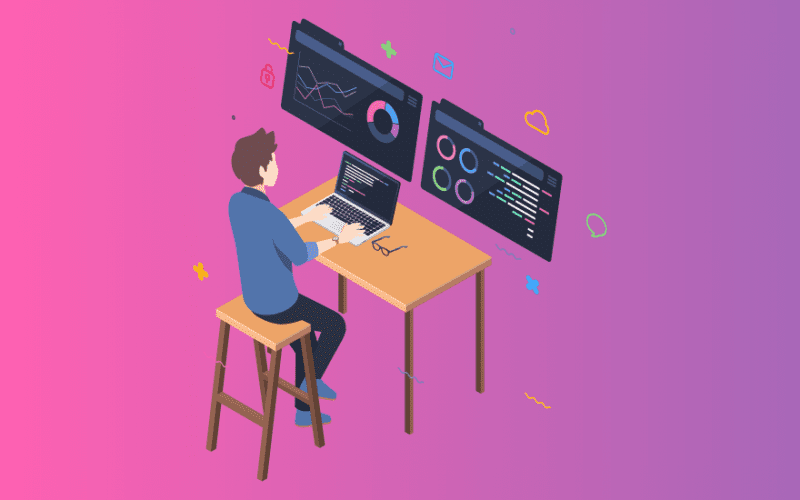Software engineering can be referred to as the branch of engineering that deals with the development, maintenance and designing of software. If you are a student of computer science and are interested in pursuing a diploma that involves software programming, and development of new software, then a diploma in software engineering is something that you should consider.
This Blog Includes:
Diploma in Software Engineering after 10th
A student can pursue Software Engineering course after completing his 10th board. Many college in India and abroad provide such courses for the students to gain knowledge in Software Engineering at a early stage. The candidate needs to qualify class 10th from recognised board with good percentage which can vary depending on the institution. The software engineering diploma courses are available in various software development fields like Full Stack Development, Cyber Security, Cloud Computing, Big Data, DevOps, etc. Process of admission is mainly based on JEE Main, JEE Advanced, SRMJEEE, GATE etc entrance tests. The course fee would range from INR 1 – 3 lakh approximately.
Software Engineering Colleges in India
There are many colleges that offer Software Engineering Diploma courses in India. The top institutes in India are mentioned in the table below:
| Institute | Course fee (INR) | Average Salary (INR) |
| Delhi Technological University | 1,66,000 | 11,17,000 |
| SRM Engineering College | 2,60,000 | 8,30,000 |
| Bharath Institute of Higher Education and Research | 40,000 | 3,50,000 |
| Graphic Era University | 3,23,400 | 7,50,000 |
| Bharati Vidyapeeth Deemed University | 1,20,000 | 1,00,000 |
| Jain University | 1,97,500 | 6,40,000 |
Diploma in Software Engineering Syllabus
A Diploma in Software Engineering will teach you how to develop, maintain and design a software that is user-friendly, easy to maintain and cost-effective. This diploma will introduce you to the practical aspects of working in the software industry and also give you a chance to expand your job prospects. Software Engineering requires you to have a good command over computer science and the fundamentals of it. Here are a few key components of a diploma in software engineering that will be taught in detail, throughout the course:
- Computer Fundamentals: This subject deals with the fundamentals of a computer. It focuses on various basic topics like input and outputs, networks, virus, etc.
- Java: Java is a computer programming language and is one of the most used and basic programming languages that helps you to get the desired output. This language works on the coding system and can also perform multiple tasks at the same time.
- Algorithms: Algorithms can be referred to as commands to a given programming language in order to obtain a certain output which is helpful in the production of a software, these specific commands which have specific procedures are called algorithms.
- Software Design: As the name of this subject makes it very clear this field of study aims to develop and design various components and framework of a software. The above given programming languages and other important basic subjects are an integral part of this subject.
Here are the other subjects that will be taught under this diploma:
- OOPS, C++
- Tally
- JEE
- System Internals and Networking
- MS-Office and Internet
- Flowcharts
- Programming with C
- HTML
Also Read: Software Courses List
Diploma in Software Engineering- Job Prospects
Software engineering has a lot of career opportunities and if you plan to pursue a diploma in software engineering then here are some of the job prospects that might interest you:
- Software Developer: A software developer is an expert in developing user-friendly and effective software. The range of software being developed depends on what kind of company you are working with.
- Programmer: A computer programmer uses programming languages like Java, C++ to write software programs, they are also expected to manipulate and update software from time to time.
- Web Developer: A web developer is a programmer who specializes in computer programs and helps in developing web pages.
- Software Tester: A software tester is involved in managing and determining the quality of a software. The responsibility of a tester is to ensure that software runs without any hindrances.
- Database Developer: A database developer is responsible for creating and implementing software databases. They make sure that the database is running efficiently and meets the requirement of a client.
Also Read: Career Objective for Software Engineer
Day by day vast increase in the IT sector has lead to huge demand in the field for professionals who possess the required knowledge in the field of software engineering . Hence, there are various diploma level software engineering courses offered also after class 10th. Although to pursue bachelors, masters, doctorate, PG diploma level after the diploma, the student needs to complete class 10+2 education with 50% marks and above.
To pursue a specific course can be frustrating when is come to do all the research work. Don’t worry as we at Leverage Edu will help you in analysing the best course and college for you.

 One app for all your study abroad needs
One app for all your study abroad needs






















 45,000+ students trusted us with their dreams. Take the first step today!
45,000+ students trusted us with their dreams. Take the first step today!


